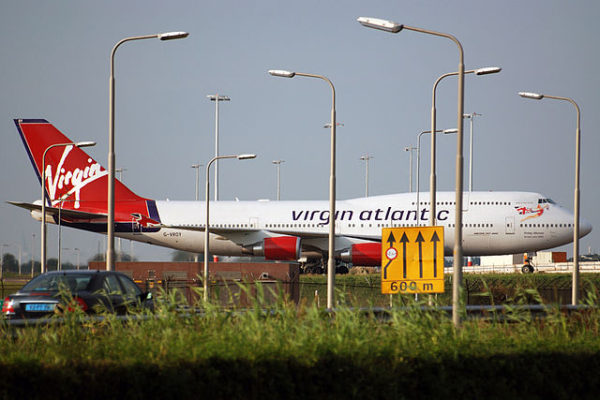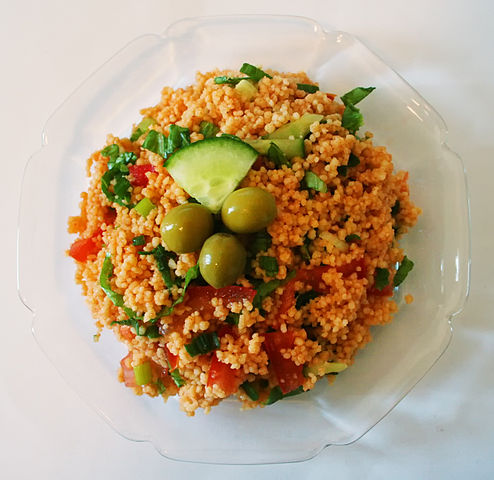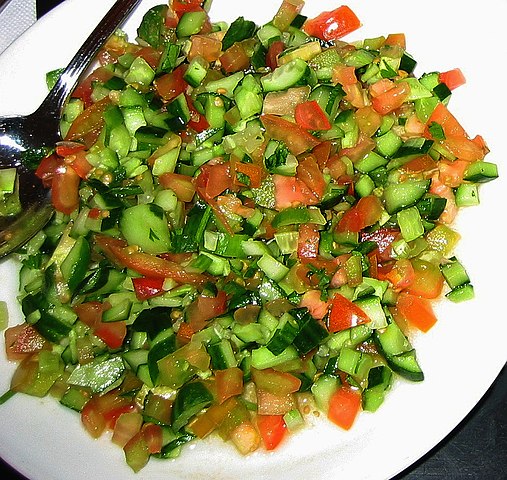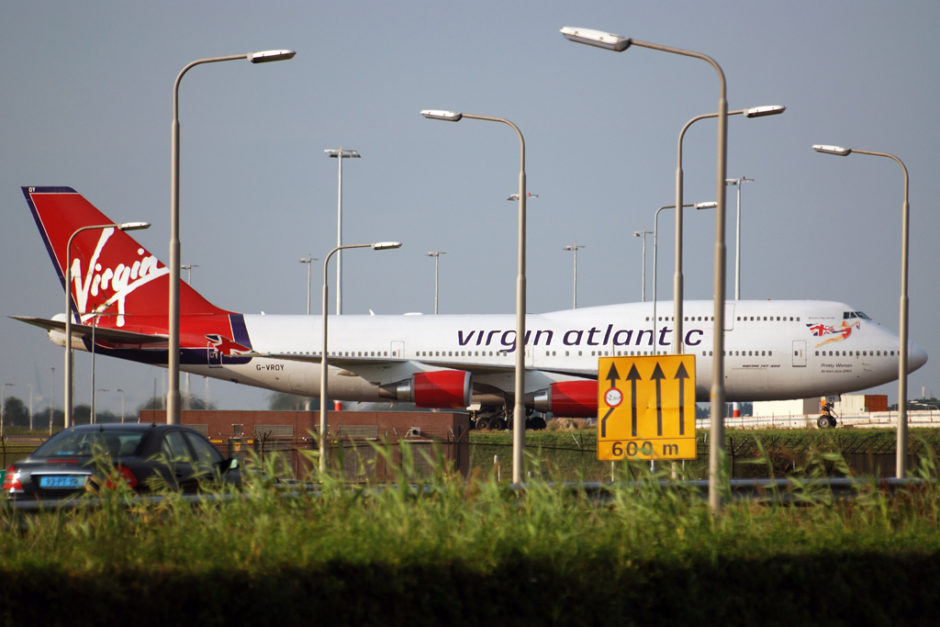I read an unusual news story the other day about a disgruntled airplane traveller, his like-minded fellow travellers and a pathetically timid and spineless airline.
Call it, if you wish, a social media spectacle stretched to absurd lengths.

In a recent tweet, Dani Williams, a passenger aboard a Virgin Atlantic aircraft, accused the British-based international carrier of being #TerroristSympathizers and threatened to boycott it in the future.
The reason? A “Palestinian couscous salad” had appeared on its in-flight dinner menu.
Unbelievable.

I don’t know what went through Williams’ mind when he sent this childish tweet. But I assume he believes that Virgin Atlantic placed the salad on the menu because it was trying to pander to Palestinians.
Williams’ silly overreaction prompted Facebook user David Garnelas to post an image of the objectionable menu, to send it to the Israel Advocacy Movement Facebook group, and to write, “I thought this was an Israeli salad … obviously (Virgin Group founder Richard) Branson showing his true colors … Israelis must boycott Virgin and Israel must ask for an explanation.”

Gernelas indignantly added that a stewardess had attempted to take back the menu from him after he had complained about the salad.
Another online denizen, Anthony Den, also expressed annoyance. As he tweeted, “Bearing in mind Jews have lived on the land you say they now occupy for over 3,000 years maybe it should be called Jewish Salad.”
Desperately concerned about its image and bottom line, Virgin Atlantic bent over backwards and issued a callow statement:
“Our customers’ experience on board is a key focus and we are constantly refreshing our food offerings on our flights. We recently introduced a Maftoul salad on board our flights. It includes a mix of Maftoul and other couscous, complemented by tomatoes and cucumber and seasoned with parsley, mint and lemon vinaigrette.
“We were aware that Maftoul is not a widely known ingredient — so the dish was listed as a ‘Palestinian couscous salad’, and later as a Couscous Salad. We’d like to reassure all customers that our sole intention was to bring new flavors on board, and never to cause offence through the naming or renaming of the dish.”

This is a tempest in a teapot beyond the ridiculous.
What could be possibly wrong with a Palestinian couscous salad? Palestinian cuisine is renowned, not only in the West Bank and the Gaza Strip, but in Israel itself. Not too long ago, I read a New York Times piece about the increasing popularity of Palestinian fare in Israeli restaurants. Who can object to the fact that some of the most beloved dishes in Israel — hummus and tabbouleh, to mention but two — are derivatively Arab/Palestinian?
Personally, I love Middle Eastern food, and I couldn’t care less whether this or that dish is labelled Palestinian, Iraqi, Syrian, Lebanese or Israeli on an in-flight menu, or in a restaurant. Are the Palestinians so beyond the pale that not even a salad can be named after them?

If that’s the case, Arab airline passengers would be entitled to be offended by the term “Israeli salad,” and airlines would be justified to rename it to suit someone’s rigid political agenda.
My view is that Virgin Atlantic should not have bowed to the idle threats of right-wingers who take their politics too seriously. Virgin Atlantic should have stuck to its guns and told Williams and his meager bunch of backers to back off.
Some may argue that airlines, in the interests of avoiding controversy, should delete all references to Palestine and Israel from their in-flight menus. There is something to be said for such a calculating public relations strategy, given the seething political climate in the Middle East today.
But if you ask me, there is no reason for this to be treated as an issue. It’s really a non-issue in the larger scheme of things.
In short, what’s the point of making a mountain out of a molehill? Why is there a problem describing a Palestinian dish by its proper name? Why should we get bogged down in such minutiae?
Let’s get real. Let’s focus on what really counts.
